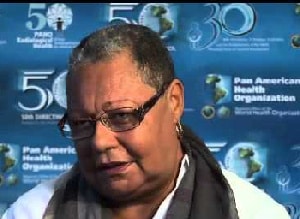Mental Health Tips: What Is Trichotillomania And How To Treat It

Trichotillomania is a condition where people pull hairs out of their head, eyebrows, or other parts of their body. It can be brought on through a variety of reasons or other conditions, including due to other underlying mental health problems. Roughly 2% of adults worldwide suffer from some form of this condition. The issue is, it can leave you with large patches of missing hair, which can, of course, lead to even more stress and worry.
Whether you think you are suffering from trichotillomania or not, it may be worth reading on to learn a little more about it. There may be some information here that can help you understand the condition or anything that may be causing you to behave this way. If you or someone you care about seems to have this condition, there are some key things you need to know.
Stress Or Habit
It’s important to try and figure out why this behavior is taking place. If you are suffering from hair loss due to mental stress, whether caused by this pulling behavior or simply down to stress-related hair loss, you want to try and address the route cause. Whether it’s yourself, your child, or another friend suffering, it’s time to seek help to figure out what is causing such undue stress. Getting this problem solved could reduce hair loss, hair pulling, and other stress-related disorders or difficulties.
Some people with trichotillomania simply develop the habit. It can be as simple as fiddling with hairs while doing something mundane like watching TV, zoning out, and not realizing that you are doing it until it’s too late. This can be frustrating, especially if you are quite unaware of the behavior until someone points it out to you and you are genuinely damaging your hair for no reason.
Who Can Get Trichotillomania?
Typically, and somewhat sadly, this kind of behavior usually develops in young people and teenagers. The most common age of the first signs of trichotillomania can be seen between the ages of 10-13. Very young indeed. Unfortunately, it’s often hard to dig deep into the causes of stress and mental health issues with young people, but it is important to try and delicately raise the issue or seek help from a specialist for advice.
Other Causes
There are some factors other than the stress that could be the root issue of trichotillomania. Believe it or not, if someone in your immediate family has it, it’s likely to be passed on to the next generation. This could be due to a chemical imbalance in the brain that leads to impulsive urges. This sort of imbalance can be passed down to children from their parents.
Another common cause or a related disorder is OCD. Obsessive-compulsive disorders often involve people feeling the urge to do something repeatedly. It’s common to switch lights on and off, repeating phrases or locking and unlocking doors that stress out OCD sufferers. However, hair pulling can be part or a byproduct of OCD too.
Treatment Options
Most commonly, it’s recommended that you see a cognitive behavioral therapist if you suffer from trichotillomania. These specialists are experts in the field of habit reversal therapy and use a variety of techniques to help do this. The varied strategies and methods used in this field mean that the first treatment suggested may not work for you, and whichever treatment you opt to try will take time and patience to achieve.
There is, sadly, no quick cure for conditions like this. First, try and address the root cause, whether that’s stress, OCD, or otherwise. Then, tackle the hair pulling aspect.
Mental Health Matters
Do not be disheartened if you read any of this article and think about mental health as a negative connotation. There is no shame in having a mental health issue, whether stress, OCD, trichotillomania, depression, or anything else. Everyone has their own issues and baggage, and just because it has a label as a ‘mental health condition,’ it doesn’t mean it’s a bad thing.
The best thing you can do is accept it, be open about it, and seek professional help to minimize the damage. Do not hide from it, as you will only increase your stress levels as you try and hide your worries from those you love.
Seek help as soon as possible to understand what is causing yours – or someone you love – trichotillomania. As stated, there’s no shame in asking for help. It’s a condition that can be treated over time with help and patience.







